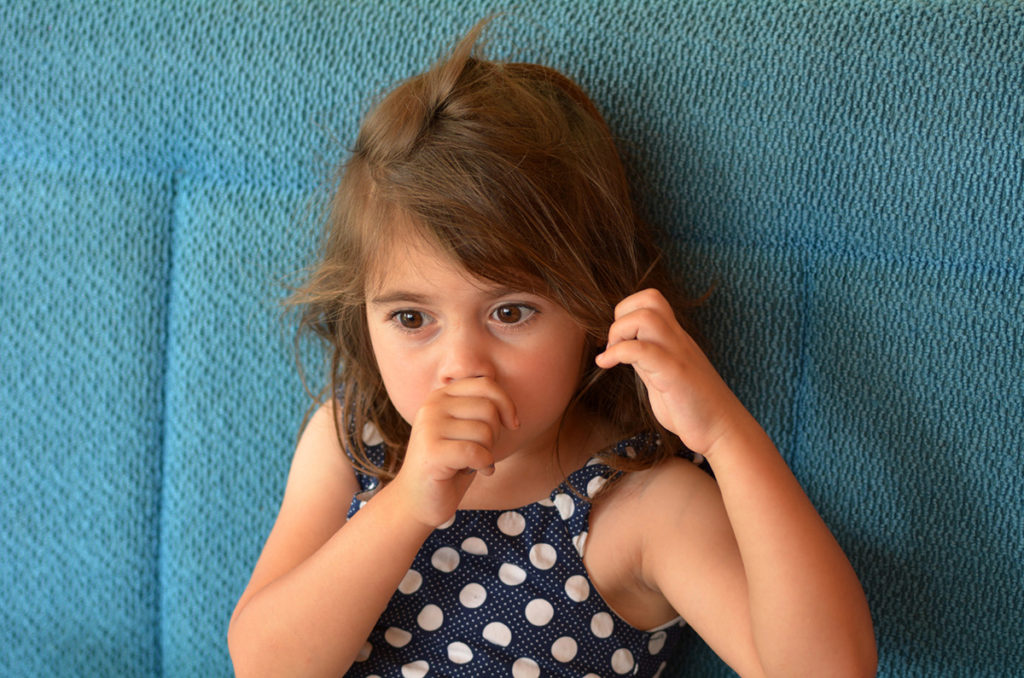Is letting your baby suck his or her thumb really such a bad thing? Tired parents the world over would agree that sometime you just have to allow your baby to do what is soothing so you can get a minute’s respite. And while our sanity is important, it turns out that while sucking on thumbs, fingers or pacifiers can make babies feel more secure and help them soothe themselves and fall asleep, it can actually cause problems with their teeth.
How does thumb sucking affect teeth?
Sucking the thumb is a natural reflex for your child, but if it continues on for too long it can cause damage. The concern with thumb sucking is that it can affect the growth of the mouth including the roof of the mouth and the alignment of the teeth. The crux of the issue is the intensity of the sucking motion. If your baby just rests their thumb lightly in his or her mouth then there may not be any dental problems, but if they are an aggressive thumb sucker they could have problems not only with their primary teeth, but their adult teeth as well.
The pressure can cause your child’s teeth to slant. Thumb sucking can also cause an open bite or an underbite because the mouth is not meant to be in a half-open position for long periods of time. When this happens the jaw joint gets pulled out of position. If the habit is stopped by 3 or 4, it will usually self-correct, but sometimes the dentist will have to correct the position of the teeth and the alignment of the jaws. Aggressive thumb suckers sometimes also develop mouth sores and bacterial infections.
Dentists recommend that children start receiving dental checkups as early as 6 months of age so keep an open dialogue with the dentist on your child’s teeth and jaw alignment and whether they see any signs of concern during their examinations.
Unfortunately all the problems don’t always end when the thumb sucking stops. Even after they stop sucking their thumb, some children will develop a tongue-thrusting habit while eating, swallowing and speaking. Because they thrust out their tongue while talking, they end up with a lisp. Usually the d’s and t’s are the letters that are affected the most.
Usually children stop sucking on their thumbs between the ages of two and four, but sometimes they continue it for longer. The negative changes can occur as early as two, many years before the first permanent teeth start erupting, so it is important to not to let this habit linger for too long. If you start noticing problems with your child’s teeth then you should talk to your dentist at your child’s next visit.
Tips for helping your child stop thumb sucking?
If thumb sucking is your child’s go-to habit for self-soothing then getting them to give it up might be challenging but not impossible. Here are some tips to help encourage them:
- Try to address their needs for self-soothing and help relieve their anxiety or teach them a healthier coping mechanism. Snuggle with them under a blanket or if they are verbal, talk to them about what is bothering them. If you don’t address the need for the self-soothing in the first place, then your child might just pick up another bad habit instead.
- Give your child praise every day they go without sucking their thumb. Even make it a game with a chart that can track the days. Give out small prizes for certain milestones. The more your child feels invested in giving it up, the more likely they will not fight you on it.
- Ask your dentist to talk to your child about the importance of giving up this habit and how sucking your thumb affects teeth. Sometimes children will respond better to another adult explain it to them for them to take it more seriously. Don’t be afraid to ask for backup.
If your child is really struggling with giving up thumb sucking then try covering up the thumb as a reminder to the child to stop sucking. A bandage on the thumb can serve as a reminder to your child that they shouldn’t be sucking on it. A sock on the hand can also keep your child from doing it in the middle of the night while he or she is sleeping. Your dentist or pediatrician may also be able to give you a bitter medication to put on the thumb to deter the thumb sucking or give your child a mouth appliance to use.
The important thing to remember is this is a natural reflex and your child will not be able to just stop cold turkey one day. You will need to be patient with them and help them wean off it gradually just like you did with the bottle or breast. Yelling at them is only going to stress them out more and perpetuate the habit. If you are getting nowhere on your own, ask your dentist for techniques that will help. Often the team approach works best.
Nipping the problem in the bud early
Try not to wait until the thumb sucking becomes a major issue before nipping it in the bud. The earlier it stops the better it is for your child’s oral health and there will be less problems that will need to be corrected down the road. By age 3 if your child hasn’t stopping sucking their thumb, then you should start to try to wean them off of it. Age 6 when their adult teeth start to come in is the absolute latest you want to stop it.
It seems like such a small thing, letting your child suck his or her thumb, but it is really important to realize how much sucking your thumb affects teeth. While an infant or one or two year old that does it is not usually a cause of concern, it is for children older than two. Work with your child now to find other ways to self-sooth and handle anxiety so this habit doesn’t cause the problems as they get older.



